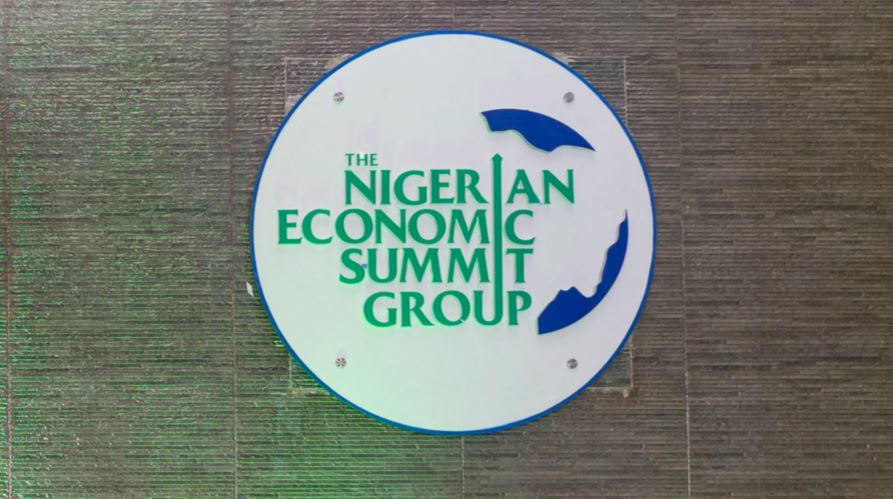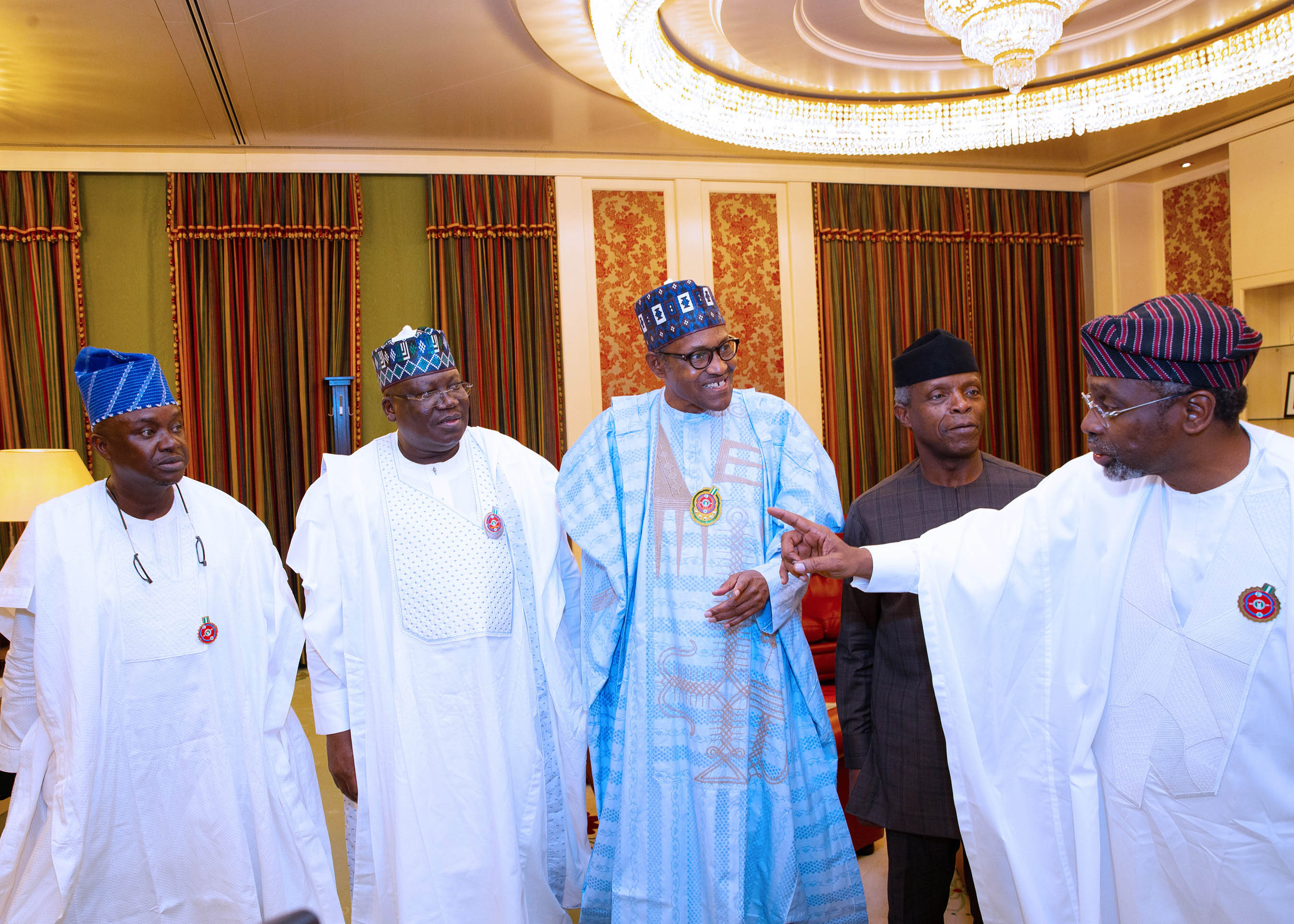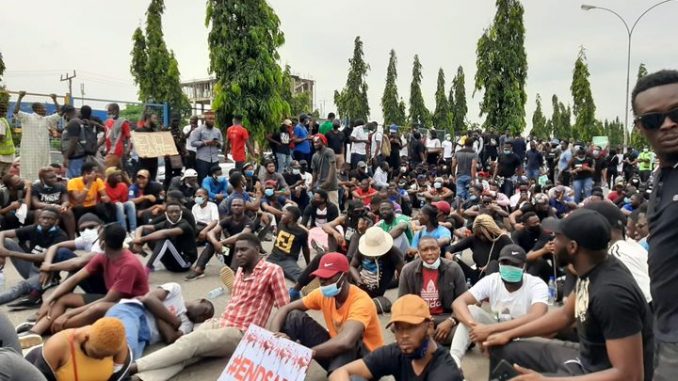BY DOTUN ADEKANMBI
It used to be the case that the Nigerian economy stood on an intellectual tripod that comprised the academia, the civil service and the private sector. All three legs did not, strictly speaking, work in tandem towards achieving a common goal. Whilst the professors theorised with minimal input from the field, the civil servants formulated and implemented public policies from a weak economic knowledge base and the private sector carried the can for every flip-flop in the marketplace. If goals aligned along the line, it was largely circumstantial, not the result of careful planning. If not, all three parties met at conference tables to produce ad hoc solutions to the country’s myriad of economic challenges.
The need for more strategic planning for national economic development spurred a band of key players in the private and public sectors, the civil society and the academia to conceive the Nigeria Economic Summit Group (NESG) in 1993.The Group’s mandate to promote and champion the reform of the Nigerian economy away from a largely public sector, closed-door affair into an open, globally competitive economy. The six underlying principles of NESG emphasized a commitment to a free-market economy; the encouragement of private sector investment; the creation of an enabling environment; governance in the national interest; commitment to the rule of law and the establishment of an economic foundation for democracy.
Twenty-six years into its annual Summits, the NESG has kept faith with its vision of strategically promoting inclusive growth, achieving impactful economic policy reform and ensuring stakeholder satisfaction. Of significance is the theme of the third Summit in 1996, ‘Unlocking Nigeria’s Economic Potential’, the outcome of which influenced the Federal Government’s institution of ‘Vision 2010 – A Long Term Free Market Development Plan for Nigeria.’ Subsequent Summits focused on vital themes that underscored the need to expeditiously rebuild the Nigerian economy.
Advertisement
Much of the positive outcomes generated at NESG Summits derived from shifting emphasis from the ‘talk-a-thon’ approach of conferences to a ‘Paying to Serve’ culture in which NESG members invest their time, resources and capabilities in advancing the public/national interest. As the pioneer Vice-Chairman, Mr Dick Kramer, clarified it: “We substituted High-Tables for Work-Tables (because) we knew that it would take sitting in small groups with the government officials to make the policy changes we needed for Nigeria to happen.” The resultant Technical Working Groups (TWG) have continued to serve as the engine room for the operations of NESG and the core groups that engage in the follow-up commitments established at the maiden summit in 1993.
If anything, the ready acceptance of the recommendations of the NESG by successive governments point to the fact that the Group had filled yawning gaps in development planning in Nigeria. Indeed, the NESG’s qualitative interventions could be felt in its recommendation of far-reaching economic and institutional reforms that were essential for the nation’s return to and sustenance of democracy.
The recommendations include the creation of the Niger Delta Development Commission; the implementation of the Universal Basic Education Programme to enhance literacy in Nigeria and institutional reform to turn around years of systemic and institutional corruption, which presage the establishment of the Independent Corrupt Practices Commission (ICPC) and the Economic and Financial Crimes Commission (EFCC). Also notable was NESG’s partnership with the Obasanjo administration, which led to the development of the medium-term economic agenda called the ‘National Economic Empowerment Development Strategy’ (NEEDS) and its domestication as the ‘State Economic Empowerment Development Strategy (SEEDS), and the ‘Local Government Economic Empowerment Development Strategy’ (LEEDS).
Advertisement
The strategic idea behind the formulation of NEEDS-SEEDS-LEEDS was to activate Nigeria’s political economy by empowering private sector enterprises to become the engine of growth. It similarly redefined and re-emphasized the role of government within the context of policy formulation and the establishment of appropriate legal and regulatory framework, which underlines a core part of the NESG mandate.
NESG’s Summits and contributions from its members also set the tone for the comprehensive review of Nigeria’s telecommunications and broadcasting policies and the consequent deregulation of the Information and Communication Technology sector. The full liberalisation of the sector and the auction of mobile telephony licences also helped to change the face of communication in Nigeria. In the financial services sector, the 2004 banking consolidation programme, which reduced the number of banks in the country from 89 to 25, was an offshoot of Summit deliberations. Recommendations from NESG also impacted maritime and seaports reforms, especially in respect of accelerated ratification and domestication of all pending International Maritime and Shipping Codes and Conventions to which Nigeria was a signatory; the strategic concession, commercialisation and privatisation of Nigeria’s sea ports; maritime local content development through the Cabotage Act and Bareboat Charter Regulations to boost tonnage; the establishment of Unified Maritime Administration for the full implementation of all Maritime Codes, Conventions and Protocols and improving Security and Safety of Nigerian Maritime Domain, which led to the establishment of the Presidential Implementation Committee for Maritime Safety and Security (PICOMSS).
In the education sector, the NESG reached an agreement with the National Universities Commission (NUC) to collaborate on the development of solutions that strategically drive effective development of a productive university system that also guarantees quality and relevant education for national development and a globally competitive economy. That collaboration aims to bridge the gap between business and the academia. Beyond this, the NESG has also established a working committee that comprised the NESG and the NUC to review the blueprint on the Rapid Revitalisation of University Education in Nigeria, 2019-2023. This was sequel to the discovery that the current strategy did not align with the future of work and needed to be coordinated with critical stakeholders in the public and private sectors.
Also worthy of commendation is NESG’s strategic alliance with the European Business Policy Council to provide international investors in Nigeria with a dedicated platform to engage government on conducive environment and policies for foreign investments in Nigeria.
Advertisement
One must also recognize the smooth collaboration of NESG with the National Assembly and the legal profession which gave rise to the National Assembly Business Environment Roundtables (NASSBER), a wholly private-sector funded body made up of working groups that hold regular meetings and review selected legislations. NASSBER collaborates with some other stakeholders to facilitate the speedy passage of critical bills to improve Nigeria’s economy
Whilst stakeholders are agreed that the NESG has reasonably demonstrated the capabilities to sustain its mandate, there still are misgivings that the body has yet to maximise its ability to secure sufficient legislative powers to back its initiatives. Even at this, the body cannot take the bulk of the blames. In 2019, NESG did point out that the non-passage of some priority bills has contributed to the persisting regulatory environment that has contributed to low investor confidence and slowed Nigeria’s economic growth.
Let us look at the records. According to NESG, NASSBER had identified 31 priority Acts and Bills as crucial for economic development and enabling business environment. Of the Acts and Bills, 16 were passed by the Senate and the House of Representatives, with four pending at both chambers. Thirteen of these bills were transmitted to President Muhammadu Buhari for his assent. However, he assented to only two, that is, the Secured Transactions in Moveable Assets Act and Credit Reporting Act. The President later withheld assent to four of the bills.
Till date, the NESG can be said to have succeeded in playing its self-assigned role as the country’s foremost economic think-tank and a bridge between the government and private sector stakeholders. As the NESG converges on Abuja between October 26 and 27 for its 26th Summit, much is expected from the body as participants reflect on the state of the Nigerian economy, rethink the country’s economic fundamentals and deliberate on the impact of the coronavirus pandemic on the socio-economy.
Perhaps, it is fitting that the opening plenary topic of the Summit is ‘Nigeria’s Turning Point.’ At 60, Nigeria truly needs to adopt a different approach from its current hit or miss policy of economic management to a sustained policy planning regime aimed at achieving economic growth and development. That approach, the NESG maintains, will be anchored on a robust partnership between sub-national governments and the private sector to capitalize on sub-national factor endowments to achieve global competitiveness. In the age of economic and physical lockdown brought on by the global coronavirus pandemic, it is also critical, as the Summit is set to do, to consider ‘Counting the Costs: The Economic Impact of COVID-19’ at the Summit’s plenary session.
Advertisement
As has been the success story of the NESG since its inception, robust contributions and recommendations are expected from the 26th edition that will assist the government in no small way in the management of the economy. This fact can almost be taken for granted. What remains to be seen is the willingness of government to support NESG with the political will to ensure that Nigeria meets the United Nations-approved Sustainable Development Goals by 2030.
Dotun Adekanmbi is a consultant. He writes in from Lagos
Advertisement
Views expressed by contributors are strictly personal and not of TheCable.
Add a comment





